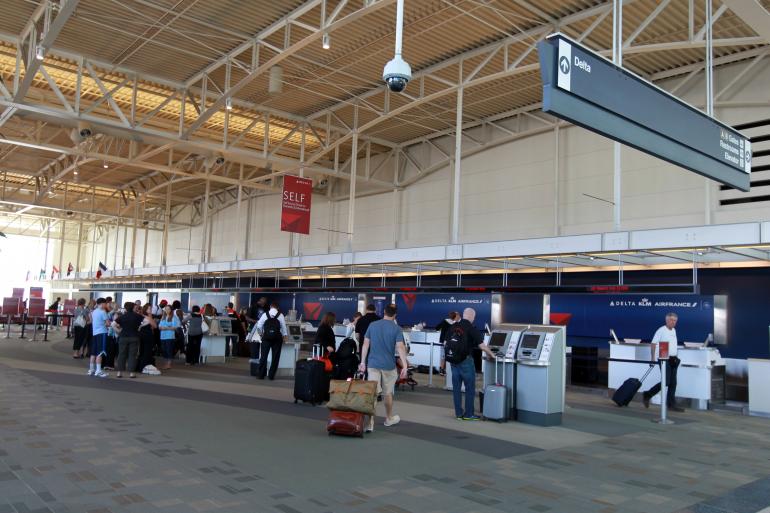How easy is it to be successful in the hotel business today? That was the opening question for a panel of CEOs at the 2017 NYU Hospitality Conference held at the Marriott Marquis in New York, and it was answered with varying degrees of confidence.
Sebastien Bazin, chairman and CEO of AccorHotels, said that the hotel business is tough because guests are growing ever more demanding, and thanks to social media these guests are louder than ever when disappointed. “We as an industry are resilient and still growing, but it is not a business for amateurs,” he said.
Mark Hoplamazian, president and CEO of Hyatt Hotels Corp., expressed concern that the promises espoused by president Donald Trump on the campaign trail to improve the country’s travel infrastructure will end up sidelined as focus is shifted to tax reform (or worse, piggybacked atop tax legislation). According to Hoplamazian, infrastructure updates are sorely needed by the public and would be a boon for the travel industry, and urged those in attendance to become more active in promoting the infrastructure agenda.
“The CEOs at this table may feel that this is not the right order [for things],” Hoplamazian said. “We believed, based on what we heard from the administration, that they can make infrastructure reform a reality apart from tax reform. We as an industry need to work together to move that needle.”
Expedia’s president and CEO Dara Khosrowshahi chimed in with a note of positivity, finding that society’s trend toward experiential travel is a big plus for the industry, as evidenced by data mined from social media site and ego showcase Instagram. “The number of pictures taken of ‘stuff’ is going down on Instagram, while pics of places and events are on the rise,” he said. “We are going from a society of stuff to a society of experiences, and this experiential economy has incredible potential and is good for the world.”

The Cycle Debate
Clearly for some, times are good, but it wouldn’t be a hotel conference if the subject of the business cycle didn’t come up. Thomas Baltimore, chairman and CEO, Park Hotels & Resorts, said that traditional hotel business cycle trends find 11 months to be a consistent number from “trough to trough,” but there have certainly been aberrations in the past and Baltimore thinks we are in the midst of one now.
For example, the last cycle ran for 56 months, but the current cycle is at 86 months and counting. What’s more, Baltimore said that if the Trump administration succeeds in passing modest tax reform (he called wholesale tax reform “probably out of the question”) the cycle could be extended even further.
On this note, Bazin agreed, even hypothesizing that the cycle has longer legs than many have the guts to admit.
“To compare this cycle to those in the 1980s is rubbish,” Bazin said. “[Expedia] and the concept of metasearches didn’t exist then, and travel is so much cheaper than it was even 20 years ago. Now we have access to travelers from countries that weren’t traveling at all then, such as China, Russia and Nigeria. I think the cycle will go on much longer than people believe.”
If some kind of tax reform were to happen in the U.S., where would these CEOs like to see it take place? Hoplamazian said at the present time hotels should focus their attention on where the money would be applied, as opposed to the reform itself. His interest lies in creating incentives to bring U.S. corporations with large offshore cash balances back into international waters, and championed simplicity. Baltimore, however, is in favor of any kind of reform capable of stimulating investment.
“The tax proposals we’ve seen are so complex and dramatic. When you talk 100-percent expensing and border taxes, people don’t like that because we don’t like wholesale change as a country,” Baltimore said. “We like incremental change. [The U.S.] hasn’t even adopted the metric system yet.”

Sharing Equally
It was only a matter of time before someone brought up Airbnb, and Bazin was the first to broach the subject. He said that today’s travelers were simple to understand and difficult to respond to due to their fickle nature. Based on that analysis, Accor has had a major focus on winning the retention game, particularly because alternatives in the sharing economy are cheaper, often offer more space and are currently trendy. Bazin’s answer is to offer a more robust loyalty program, which can be used by guests as interactive travel guides regardless of if they are staying at a branded hotel or not.
“If a customer returns to a destination a second or third time, like Paris, chances are they will test private rental sites eventually,” Bazin said. “Do you lose that customer or follow to be of service in alternative lodging? Maybe offer a digital concierge to help travelers when they are lost in Bangkok, even when they aren’t using a hotel product. We have to respond to the unforeseen events that happen every day.”
Working in tandem with the sharing economy isn’t the same as working with the sharing economy, a fact Baltimore jumped to express. Though he wanted to avoid being negative, Baltimore wanted to remind everyone in attendance that the vast majority of Airbnb hosts still don’t comply with the rigorous safety requirements hotels contend with, and many hosts still don’t pay taxes. Hoplamazian pointed out that the sharing economy isn’t as new as many people think, with BRBO beginning life 20 years ago, but until now hotels and home rentals were on an even playing field.
“We have to be nimble, creative and ready to meet customer needs, but Airbnb has to play by the rules,” he said.”
Furthermore, Hoplamazian said he disagrees that the current traveler is understood by the industry. By his logic, hotel companies have spent the last few decades dedicating themselves to developmental efficiency, pushing out the type of product that could be built in large numbers while forgetting the art of designing an attractive, useful guestroom. He pointed to Khosrowshahi’s team at Expedia and how they run tests on the traveling public frequently, sometimes hourly, in search of how the customer responds to different stimuli within the industry.
“Generalizing about the guest is very dangerous, and getting a deeper understanding of our customer requires real focus and effort,” Hoplamazian said. “What we need is to reconnect [with travelers] in a significant way. This isn’t rocket science, the roots of our industry were in person-to-person interaction. We need more empathy, and empathy plus action equals care. We have a great antenna out there, now we have to do something with that signal.”
